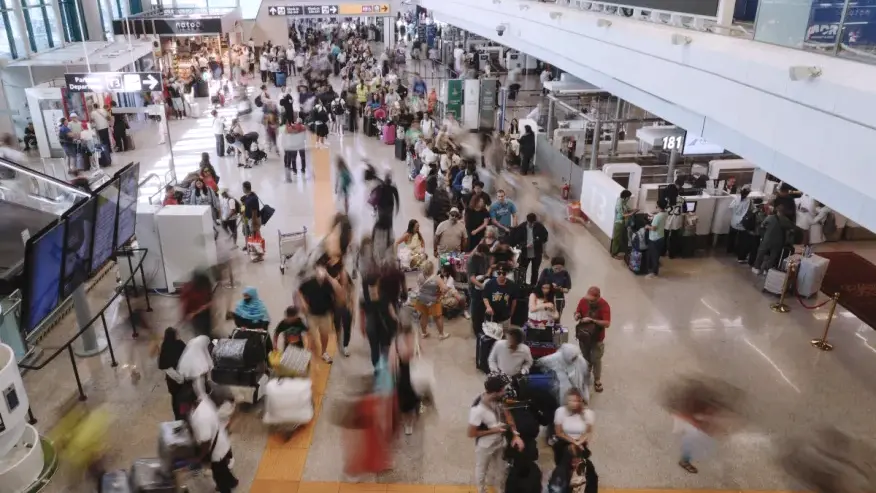

|
||

A massive IT glitch originating from a software update by cybersecurity firm CrowdStrike has caused significant disruptions worldwide, impacting airlines, businesses, medical facilities, and broadcasters. The issue, identified as a faulty update in Microsoft cloud services, led to widespread outages early Friday.
CrowdStrike, responsible for the problematic update, confirmed it was not a cyberattack but a technical error. While some systems automatically recovered after a subsequent fix, others required manual intervention, leading to ongoing delays.
Airlines and airports grounded: The glitch grounded numerous flights globally, with major carriers like American Airlines, Delta Air Lines, and United Airlines issuing ground stops. Delta implemented a “global ground stop,” affecting flights as far as Japan. Over half of the U.S.‘s 1,352 flight delays and cancellations before 8 a.m. ET were attributed to this issue, according to FlightAware.
CrowdStrike’s CEO, George Kurtz, apologized for the disruptions, noting that recovery might take time for some systems. He assured that their team had rectified the issue and were identifying the source of the malfunction.
Airports in Europe, including Berlin’s Brandenburg and Spain’s Aena-managed airports, reported delays due to the outage. Budget airlines in South Korea and Sydney Airport also faced technical problems. Paris airports experienced delays, but operations for the upcoming Olympics remained largely unaffected.
Widespread impact on businesses and services: In the UK, the London Stock Exchange halted its regulatory news service, and train operators faced cancellations. The National Health Service reported global IT issues affecting GP appointments and patient records, though emergency services remained operational. Israel’s hospitals, too, were impacted, with most reverting to manual operations.
Media outlets were not spared, with NBC News, Sky News, and Australian broadcasters experiencing disruptions.
The incident underscores the fragility of global IT infrastructure and the far-reaching consequences of such technical failures.
Sponsored byRadix

Sponsored byVerisign

Sponsored byVerisign

Sponsored byCSC

Sponsored byDNIB.com

Sponsored byWhoisXML API

Sponsored byIPv4.Global
